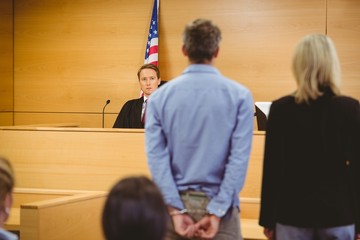
When a United States citizen faces criminal charges and is found not guilty, they are acquitted of their charges. Some people may not be happy about that, especially the prosecution. However, regardless of personal feelings, that person will never be prosecuted for the same crime again. This is thanks to the double jeopardy clause. Read on to learn more about how double jeopardy works. If you require legal representation or advice, speak with an experienced Bergen County lawyer today.
Double jeopardy is a legal principle under the Fifth Amendment of the United States Constitution. The clause states that a person cannot be “subject for the same offense to be twice put in jeopardy of life or limb.” Plainly, this means that once a person has been acquitted or convicted of a crime they can’t be tried for it again. Finding new evidence after the fact does not mean that a person can be retried.
This law is important because it protects citizens from unfair practices and prevents them from a violation of justice. If a person were to be subjected to prosecution for the same event over and over until everyone was satisfied with the outcome, it would be unfair to the defendant.
Double jeopardy only applies to criminal cases. People involved in civil suits are not protected by the same laws. This also means that someone facing criminal charges can also be involved in a civil lawsuit for the same situation.
It’s important to make the distinction that double jeopardy does not mean that a person cannot commit a crime more than once and be charged for it. For example, if a person committed assault and was tried and convicted then committed another assault a year later, they can of course be tried for the second assault. The clause applies only to the one singular occurrence of a crime.
Mistrials are an exception to double jeopardy laws. If a trial results in a hung jury, meaning that the jurors cannot come to a unanimous or satisfactory decision, a judge may declare a mistrial. Since no verdict was reached double jeopardy does not apply and the defendant can be prosecuted again.
If a person commits a crime across multiple state borders they can also be charged more than once. Different states have their own laws so the crime could be treated as separate offenses and the defendant could be charged multiple times.
A controversial exception to the double jeopardy rule relates to a Supreme Court ruling. State governments and federal governments are considered separate sovereigns. This means that a person who is tried for a crime at the state level can also be tried for the same crime at the federal level because technically a crime under one sovereign is not the same offense as a crime under another.
© 2025 The Law Office of Kevin T. Conway. All rights reserved.